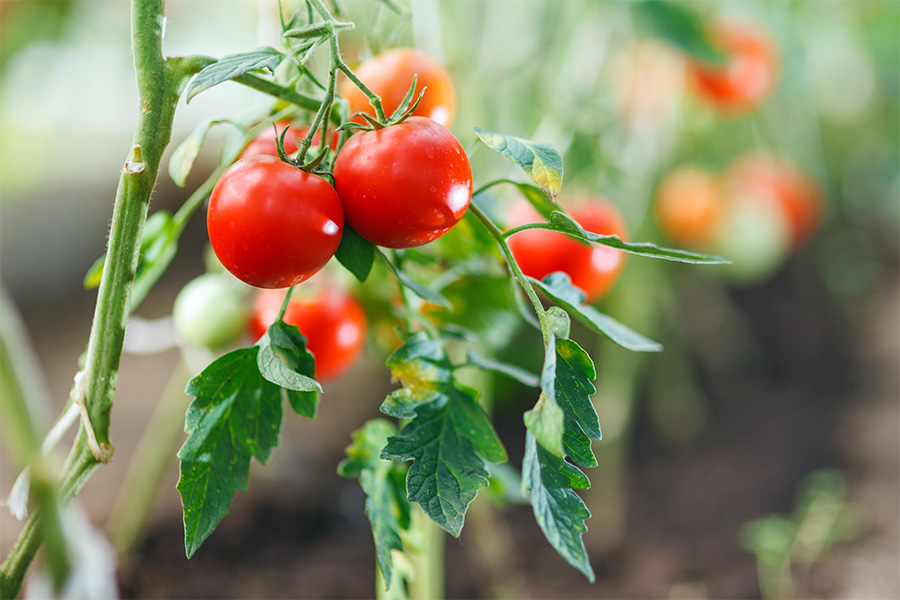Horticulture
-

B 1276
Water Management Assessment
The Greenhouse*A*Syst series of publications is a confidential self-assessment program you can use to evaluate your greenhouse business for risks associated with water management issues. Armed with facts and figures, you will then be able to reevaluate your management strategies and determine ways to conserve water and minimize those risks. By following the guidelines, you will be able to establish a formal companywide water conservation plan. Implementation of this plan will facilitate more efficient use of resources and impart significant savings in water use, fertilizer and pesticides. This publication will help you take a candid look at how you approach water management.
Bodie V. Pennisi
|
-

B 1277
Water Quality Assessment
The Greenhouse*A*Syst series of publications is a confidential self-assessment program you can use to evaluate your greenhouse business for risks associated with water management issues. Armed with facts and figures, you will then be able to reevaluate your management strategies and determine ways to conserve water and minimize those risks. By following the guidelines, you will be able to establish a formal companywide water conservation plan. Implementation of this plan will facilitate more efficient use of resources and impart significant savings in water use, fertilizer and pesticides. This publication will help you determine your water quality and help you develop a management plan to monitor your water quality.
Bodie V. Pennisi
|
-

The Greenhouse*A*Syst publication Series has been developed to assist greenhouse owners with the task of assessing three management issues: Water management, Environmental Risk and Business Profitability. This publication will also help you establish a water conservation document you may find useful if and when state or local water authorities develop policies or implement water restrictions. Most water authorities are favorably impressed with businesses that have developed water conservation plans.
Bodie V. Pennisi
|
-

The Greenhouse*A*Syst series of publications is a confidential self-assessment program you can use to evaluate your greenhouse business for risks associated with water management issues. Armed with facts and figures, you will then be able to reevaluate your management strategies and determine ways to conserve water and minimize those risks. By following the guidelines, you will be able to establish a formal company-wide water conservation plan. Implementing this plan will facilitate more efficient use of resources and impart significant savings in water use, fertilizer and pesticides.
Bodie V. Pennisi
|
-

This diagnostic system is designed as a tool to assist growers, Extension specialists and county agents to diagnose problems with ornamental crops. The document consists of six major sections and five appendices. Each section is designed to supply information on various important aspects of the crop under scrutiny.
Bodie V. Pennisi
|
-

The goals of these investigations were to achieve an aesthetically pleasing landscape while experimenting with mixing various plant habits, leaf textures and colors, and even flowers, and to raise consumer awareness, both at industry and public levels, of the alternative uses of tropical plants in the landscape. This publication presents plant performance data collected over a three-year period in trials from two different Georgia environments, a coastal area and a mid-state area.
Paul A. Thomas, Allan M. Armitage, and Bodie V. Pennisi
|
-

The majority of the plants used for interior decoration are considered “foliage plants” because of the highly decorative value of their leaves. Most of them originated in tropical and subtropical areas of the world and are adapted to low light levels, making them a natural choice for interior environments.
Forrest Eugene Stegelin, Paul A. Thomas, and Bodie V. Pennisi
|
-

B 1271
Georgia Homegrown Tomatoes
This publication discusses the basics of growing tomatoes successfully, as well as avoiding common problems encountered by the home gardener.
Bob Westerfield
|
-

HORT Management is an allied program for estimating landscape management costs. This program assists the user in estimating labor, material and equipment costs on a particular job, a break-even price, and bid price on a job. Industry average data and time/task data is used throughout the program, such as the time it takes to mow 1,000 sq. ft. with a certain size mower and equipment cost per hour of operation. The user is encouraged to modify and tailor the program with his own data and costs. For more information, see http://www.hort.uga.edu/extension/programs/hortmanage.html
Bodie V. Pennisi and Cesar L. Escalante
|